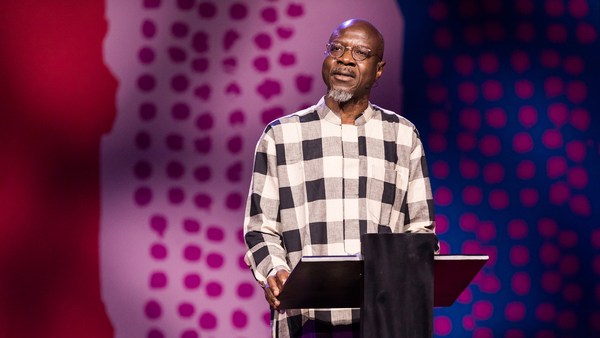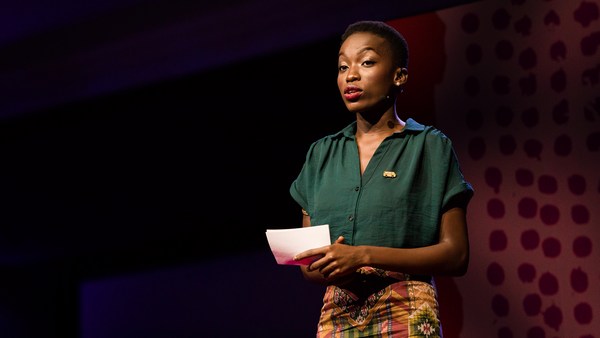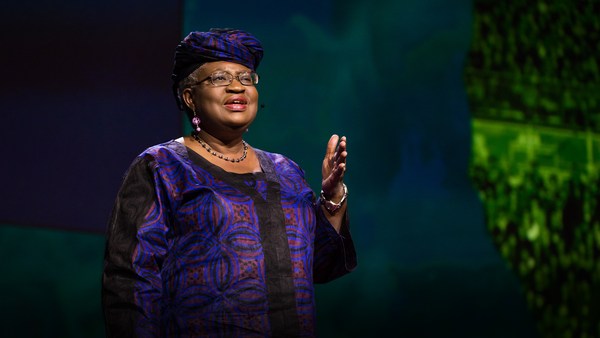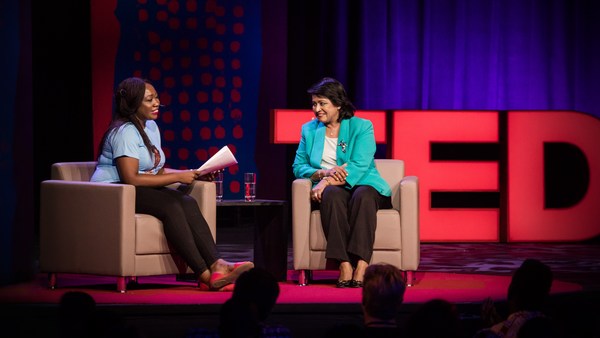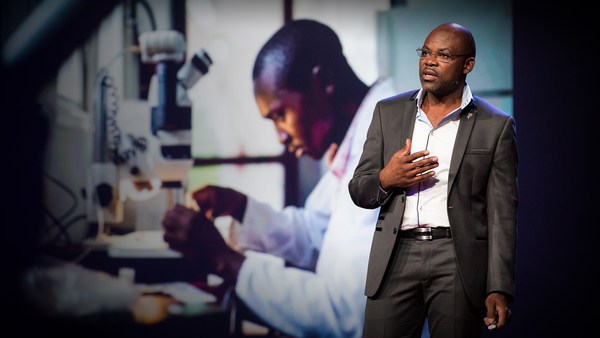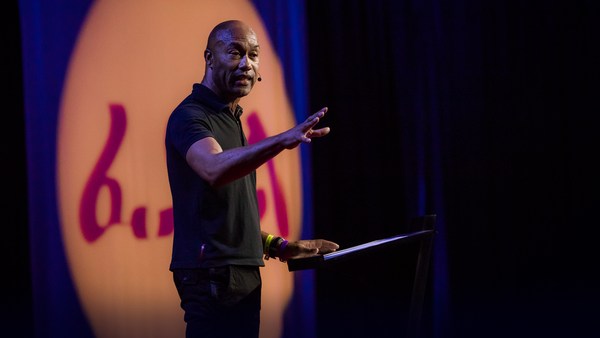Some months back, I was visiting this East African city, and we were stuck in traffic. And this vendor suddenly approaches my window with a half-opened alphabet sheet. I took a quick look at the alphabet sheet, and I thought of my daughter, how it would be nice to spread it on the floor and just play all over it with her while getting her to learn the alphabet. So the traffic moved a bit, and I quickly grabbed a copy, and we moved on.
When I had time to fully open the alphabet sheet and take a more detailed look at it, I knew I was not going to use that to teach my daughter. I regretted my purchase. Why so? Looking at the alphabet sheet reminded me of the fact that not much has changed in the education curricula in Africa. Some decades back, I was taught out of a similar alphabet sheet. And because of that, I struggled for years. I struggled to reconcile my reality with the formal education I received in school, in the schools I attended. I had identity crises. I looked down on my reality. I looked at my ancestry, I looked at my lineage with disrespect. I had very little patience for what my life had to offer around me.
Why? "A is for apple." "A is for apple." "A is for apple" is for that child in that part of the world where apples grow out; who has an apple in her lunch bag; who goes to the grocery store with her mom and sees red, green, yellow -- apples of all shapes and colors and sizes. And so, introducing education to this child with an alphabet sheet like this fulfills one of the major functions of education, which is to introduce the learner to an appreciation of the learner's environment and a curiosity to explore more in order to add value.
In my own case, when and where I grew up in Africa, apple was an exotic fruit. Two or three times a year, I could get some yellowish apples with brown dots, you know, signifying thousands of miles traveled -- warehouses storing -- to get to me. I grew up in the city to very financially comfortable parents, so it was my dignified reality, exactly the same way cassava fufu or ugali would not regularly feature in an American, Chinese or Indian diet, apples didn't count as part of my reality. So what this did to me, introducing education to me with "A is for apple," made education an abstraction. It made it something out of my reach -- a foreign concept, a phenomenon for which I would have to constantly and perpetually seek the validation of those it belonged to for me to make progress within it and with it. That was tough for a child; it would be tough for anyone.
As I grew up and I advanced academically, my reality was further separated from my education. In history, I was taught that the Scottish explorer Mungo Park discovered the Niger River. And so it bothered me. My great-great-grandparents grew up quite close to the edge of the Niger River.
(Laughter)
And it took someone to travel thousands of miles from Europe to discover a river right under their nose?
(Laughter)
No!
(Applause and cheers)
What did they do with their time?
(Laughter)
Playing board games, roasting fresh yams, fighting tribal wars? I mean, I just knew my education was preparing me to go somewhere else and practice and give to another environment that it belonged to. It was not for my environment, where and when I grew up.
And this continued. This philosophy undergirded my studies all through the time I studied in Africa. It took a lot of experiences and some studies for me to begin to have a change of mindset. I will share a couple of the remarkable ones with us.
I was in the United States in Washington, DC studying towards my doctorate, and I got this consultancy position with the World Bank Africa Region. And so I remember one day, my boss -- we were having a conversation on some project, and he mentioned a particular World Bank project, a large-scale irrigation project that cost millions of dollars in Niger Republic that was faltering sustainably. He said this project wasn't so sustainable, and it bothered those that instituted the whole package. But then he mentioned a particular project, a particular traditional irrigation method that was hugely successful in the same Niger Republic where the World Bank project was failing. And that got me thinking. So I did further research, and I found out about Tassa.
Tassa is a traditional irrigation method where 20- to 30-centimeter-wide and 20- to 30-centimeter-deep holes are dug across a field to be cultivated. Then, a small dam is constructed around the field, and then crops are planted across the surface area. What happens is that when rain falls, the holes are able to store the water and appropriate it to the extent that the plant needs the water. The plant can only assimilate as much water as needed until harvest time. Niger is 75 percent scorched desert, so this is something that is a life-or-death situation, and it has been used for centuries. In an experiment that was conducted, two similar plots of land were used in the experiment, and one plot of land did not have the Tassa technique on it. Similar plots. The other one had Tassa technique constructed on it. Then similar grains of millet also were planted on both plots. During harvest time, the plot of land without Tassa technique yielded 11 kilograms of millet per hectare. The plot of land with Tassa technique yielded 553 kilograms of millet per hectare.
(Applause)
I looked at the research, and I looked at myself. I said, "I studied agriculture for 12 years, from primary to Senior Six, as we say in East Africa, SS3 in West Africa or 12th grade. No one ever taught me of any form of traditional African knowledge of cultivation -- of harvesting, of anything -- that will work in modern times and actually succeed, where something imported from the West would struggle to succeed. That was when I knew the challenge, the challenge of Africa's curricula, And I thus began my quest to dedicate my life, concern my life work, to studying, conducting research on Africa's own knowledge system and being able to advocate for its mainstreaming in education, in research, policy across sectors and industries.
Another conversation and experience I had at the bank I guess made me take that final decision of where I was going to go, even though it wasn't the most lucrative research to go into, but it was just about what I believed in. And so one day, my boss said that he likes to go to Africa to negotiate World Bank loans and to work on World Bank projects. And I was intrigued. I asked him why. He said, "Oh, when I go to Africa, it's so easy. I just write up my loan documents and my project proposal in Washington, DC, I go to Africa, and they all just get signed. I get the best deal, and I'm back to base. My bosses are happy with me."
But then he said, "I hate going to Asia or ..." and he mentioned a particular country, Asia and some of these countries. "They keep me for this, trying to get the best deal for their countries. They get the best deal. They tell me, 'Oh, that clause will not work for us in our environment. It's not our reality. It's just so Western.' And they tell me, 'Oh, we have enough experts to take care of this. You don't have enough experts. We know our aim.' And they just keep going through all these things. By the time they finish, yes, they get the best deal, but I'm so exhausted and I don't get the best deal for the bank, and we're in business." "Really?" I thought in my head, "OK."
I was privileged to sit in on a loan negotiating session in an African country. So I would do these consultancy positions during summer, you know, since I was a doctoral student. And then I traveled with the team, with the World Bank team, as more like someone to help out with organizational matters. But I sat in during the negotiating session. I had mostly Euro-Americans, you know, with me from Washington, DC. And I looked across the table at my African brothers and sisters. I could see intimidation on their faces. They didn't believe they had anything to offer the great-great-grandchildren of Mungo Park -- the owners of "apple" in "A is for apple." They just sat and watched: "Oh, just give us, let us sign. You own the knowledge. You know it all. Just, where do we sign? Show us, let us sign." They had no voice. They didn't believe in themselves.
Excuse me.
And so, I have been doing this for a decade. I have been conducting research on Africa's knowledge system, original, authentic, traditional knowledge. In the few cases where this has been implemented in Africa, there has been remarkable successes recorded.
I think of Gacaca. Gacaca is Rwanda's traditional judicial system that was used after the genocide. In 1994, when the genocide ended, Rwanda's national court system was in shambles: no judges, no lawyers to try hundreds of thousands of genocide cases. So the government of Rwanda came up with this idea to resuscitate a traditional judicial system known as Gacaca. Gacaca is a community-based judicial system, where community members come together to elect men and women of proven integrity to try cases of crimes committed within these communities. So by the time Gacaca concluded its trial of genocide cases in 2012, 12,000 community-based courts had tried approximately 1.2 million cases. That's a record.
(Applause)
Most importantly is that Gacaca emphasized Rwanda's traditional philosophy of reconciliation and reintegration, as against the whole punitive and banishment idea that undergirds present-day Western style. And not to compare, but just to say that it really emphasized Rwanda's traditional method of philosophy.
And so it was Mwalimu Julius Nyerere, former president of Tanzania --
(Applause)
who said that you cannot develop people. People will have to develop themselves. I agree with Mwalimu. I am convinced that Africa's further transformation, Africa's advancement, rests simply in the acknowledgment, validation and mainstreaming of Africa's own traditional, authentic, original, indigenous knowledge in education, in research, in policy making and across sectors. This is not going to be easy for Africa. It is not going to be easy for a people used to being told how to think, what to do, how to go about it, a people long subjected to the intellectual guidance and direction of others, be they the colonial masters, aid industry or international news media. But it is a task that we have to do to make progress.
I am strengthened by the words of Joseph Shabalala, founder of the South African choral group Ladysmith Black Mambazo. He said that the task ahead of us can never, ever be greater than the power within us. We can do it. We can unlearn looking down on ourselves. We can learn to place value on our reality and our knowledge.
Thank you.
(Swahili) Thank you very much.
(Applause)
Thank you. Thank you.
(Applause)
